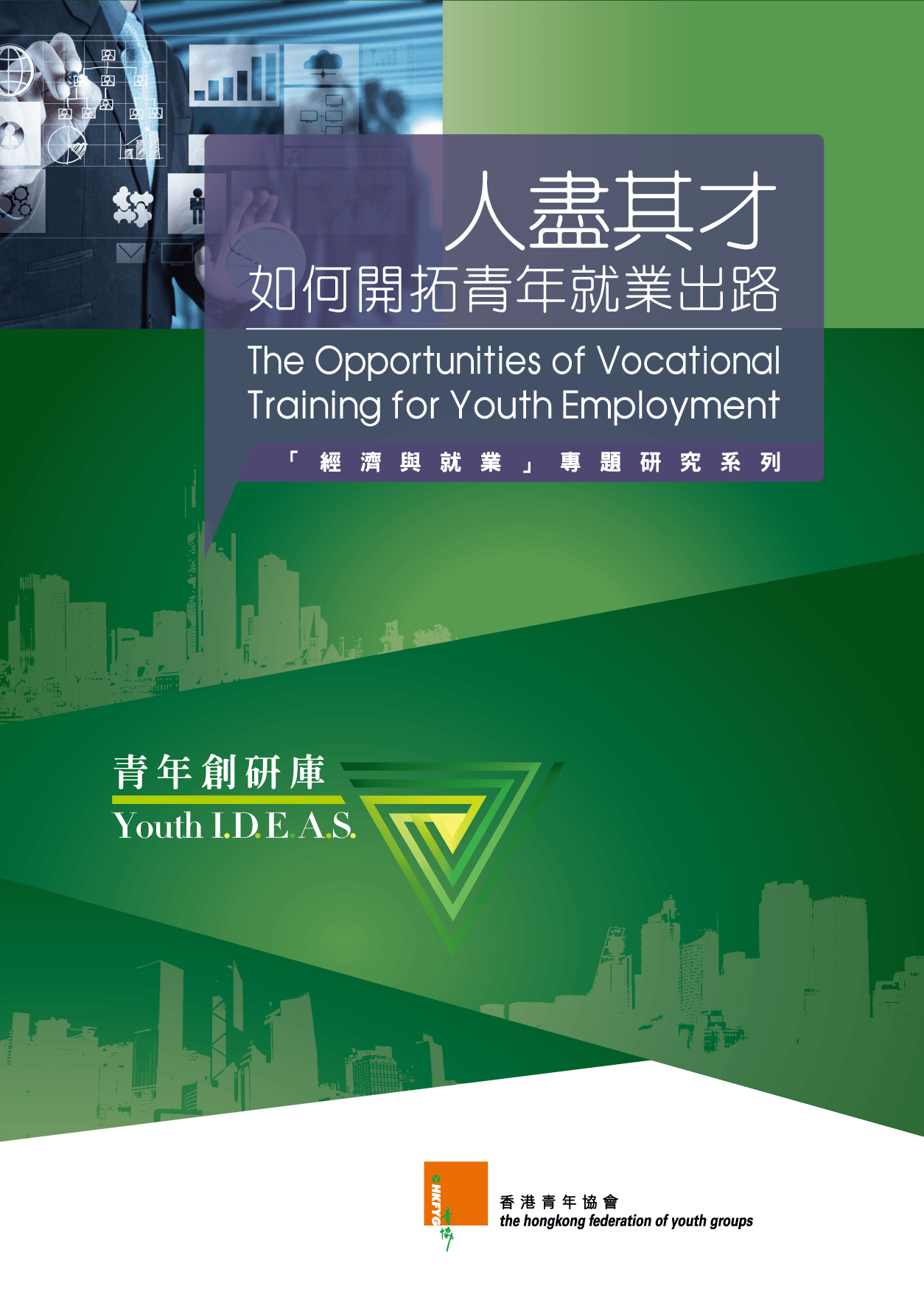The Opportunities of Vocational Training for Youth Employment
Youth I.D.E.A.S. 01
Employment and Economic Development
The Opportunities of Vocational Training for Youth Employment
30 July, 2015

There is a strong demand for staffing in Hong Kong. According to a paper on Manpower Projection produced by the Hong Kong Special Administrative Region (SAR) government, the total labour supply in 2022 is projected to fall short of the total requirements by 120,000. Local surveys also show that there are severe labour shortages in professional and technical roles in specific industries such as construction and health care. The situation is unlikely to be resolved in the foreseeable future. On the other hand, many young people are finding that there are few types of work available for them to realise their potential after completing school. This is often because they have failed to take the opportunity during school to prepare for future employment by means such as selecting the right kind of training.
Young people in Hong Kong are usually not enthusiastic about vocational education. Most young people who have failed to get into university have received an academically oriented education and are not equipped with any professional qualifications or technical skills. Without either the educational credential of a degree or a specific professional or technical qualification, such young people face difficult employment prospects.
For the benefit of long-term economic development, it is necessary for Hong Kong to make more effort to implement human resources training to enable young people to start preparing early for future employment and realise their potential.
This study focuses on vocational education offering specific technical skills training to young people so as to help them to obtain professional qualifications. The target group is young people aged 14-25 (the right age to receive vocational education). By understanding the considerations behind their choice of education or training and their views on vocational education, this study explores whether there are measures which could open up opportunities for youth employment.
This study uses an online survey and focus groups to investigate the reasons why young people choose different types of education or training, their views on technical posts and their opinions on vocational education. In addition, experts and scholars are interviewed in order to understand their assessment of the development of vocational education as well as the staffing requirements in Hong Kong.
Based on the findings of this study, Youth I.D.E.A.S. has put forward five recommendations which focus on the incentives for organising vocational education programmes and the promotion of the Qualifications Framework (QF).
Discussion
- Young people put excessive emphasis on going to university while overlooking the diverse range of study and training options available. They also have prejudices and misconceptions about vocational education which discourage them from choosing such programmes.
- The QF has not received enough attention from employers and its adoption and recognition is not yet widespread.
- The self-financed sub-degree programmes offered by the tertiary institutes tend to be academically oriented which may reduce young people’s opportunities to choose vocationally oriented programmes.
Recommendation
- Set up a “Matching Fund for Vocational Education” to encourage employers to subsidise their employees to enrol in tertiary vocational education programmes and provide opportunities for technical staff to engage in further study.
- Provide more information on the diversity of education and employment opportunities to secondary school students, parents and teachers.
- The government, industrial sector and training institutes should allocate resources to enhancing the image of certain industries and promote their professionalism.
- Promote the QF and speed up the development of SCS and the implementation of the RPL mechanism. Require employers to specify the QF level of jobs when they place recruitment advertisements with the Labour Department.
- Provide incentives for tertiary institutes to offer vocational education programmes, given the higher running costs. This should include extending the coverage of disciplines and levels of programmes subsidised by the Study Subsidy Scheme for Designated Professions/Sectors (SSSDP).




